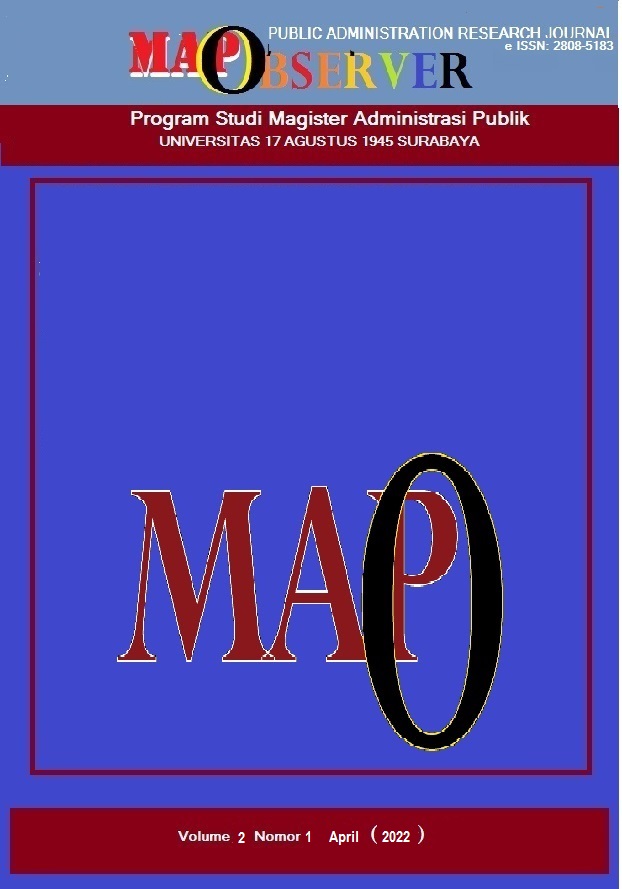ASSESSMENT OF WORK BEHAVIOR OF STATE CIVIL APPARATUS (ASN) IN THE EMPLOYEE PERFORMANCE TARGET (SKP) AT THE BUREAU OF GOVERNMENT AND REGIONAL AUTONOMY OF THE REGIONAL SECRETARIAT OF EAST JAVA PROVINCE
DOI:
https://doi.org/10.30996/mapo.v2i01.6533Abstract
The Employee Performance Target (SKP) is a form of the performance appraisal for the State Civil Apparatus (ASN) Based on PP No. 46 of 2011. Work performance assessment contains 60% SKP and 40% Behavioral Assessment. This study aims to determine how the assessment of the behavior of the State Civil Apparatus (ASN) in the Employee Performance Target (SKP) as well as the supporting and inhibiting factors in the behavioral assessment. This study uses a descriptive method with a qualitative approach. Based on the results of this study, it is known that the assessment of ASN behavior at the bureau of government and regional autonomy is pretty good Shown by the indicators of quality, quantity, cooperation, initiative and responsibility. Supporting factors are the motivation of each individual for career development and the existence of the BKD website, while the inhibiting factor is the new regulation or SOTK so that the disciplinary assessment is less effective. The advice given is to evaluate through counseling every month by the head of the sub-section and create a special attendance system for the Regional Government and Autonomy Bureau of East Java Province.
Downloads
Downloads
Published
How to Cite
Issue
Section
License
-
The MAP Observer journal allows authors to retain the copyright of their papers without limitation. Authors may grant publishers non-exclusive publishing rights to publish articles. Granting first publishing rights to publishers also qualifies as unlimited copyright (because there are no restrictions imposed by publishers on author copyright).
-
Formal legal provisions for access to digital articles from these electronic journals are subject to the terms of the Creative Commons Attribution-ShareAlike (CC BY-SA) license, which means MAPO Observer Journal has the right to store, change formats, maintain in a database, maintain and publish articles without asking. permission from the Author as long as the Author's name is the owner of the Copyright.
-
Printed manuscripts and electronic publications are open access for educational, research and library purposes. Apart from these purposes, the editorial board is not responsible for violations of copyright law.









